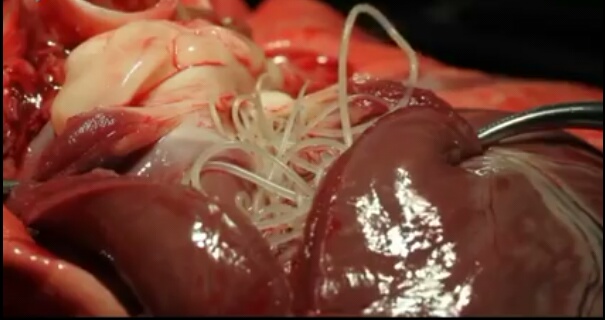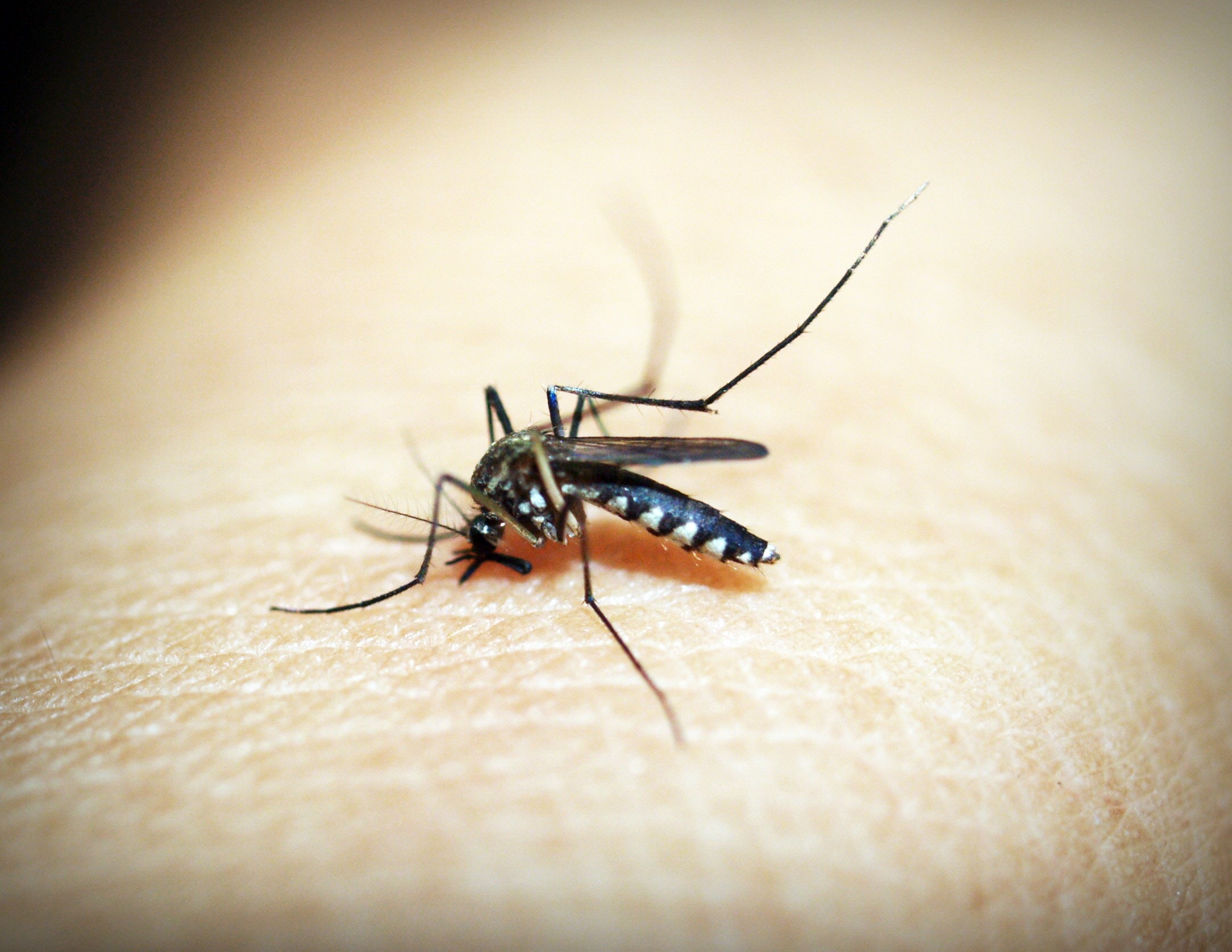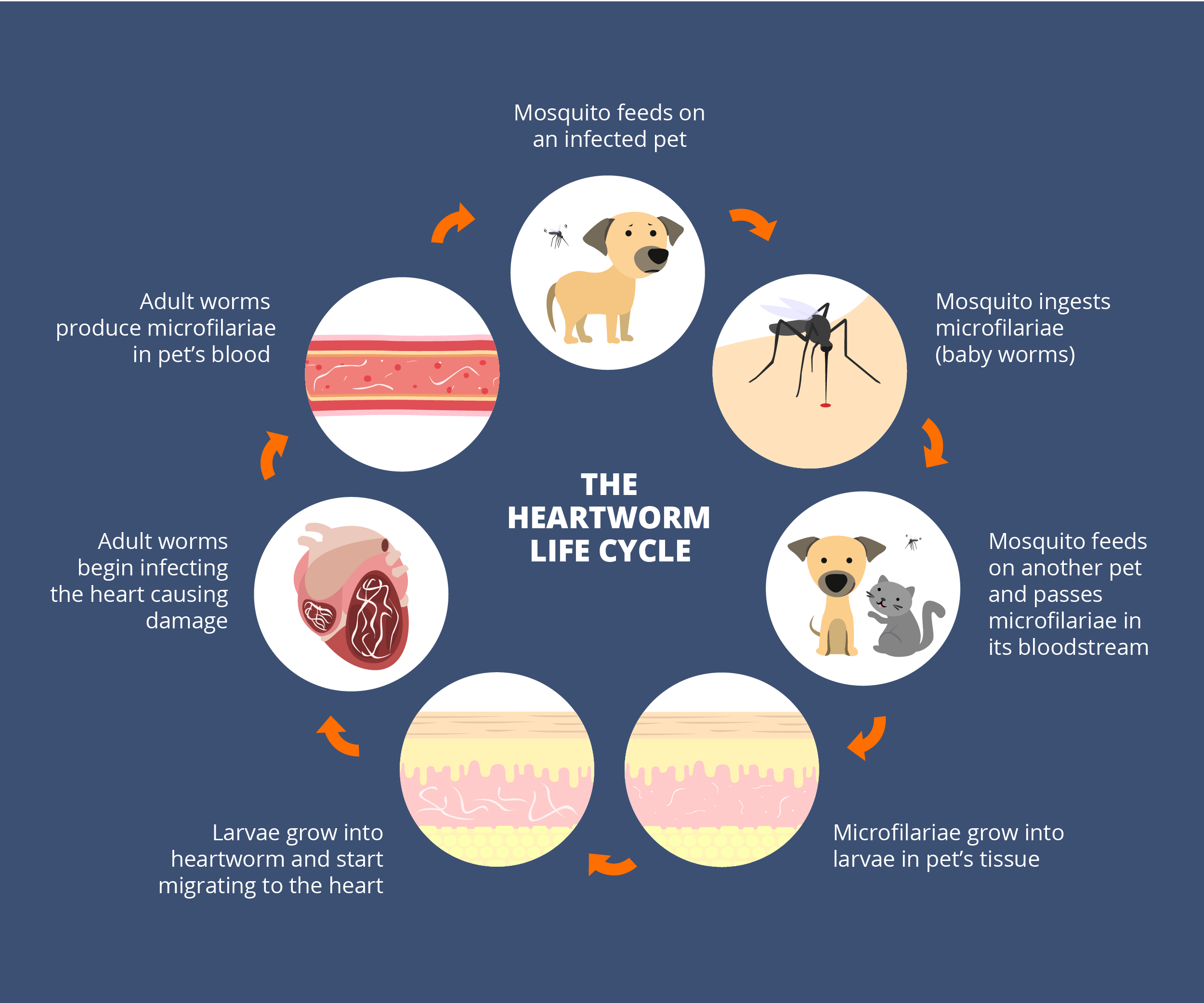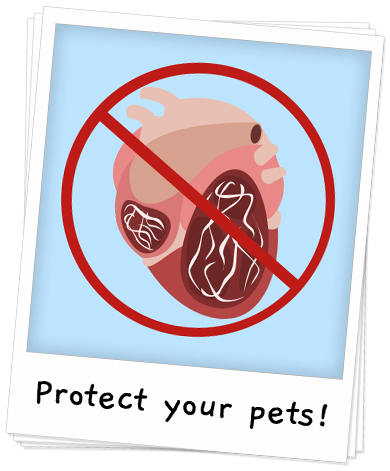Blog April 23, 2019
It's Heartworm Awareness Month!
At Pet Shed, we say no to heartworms! Heartworms have been known as silent killers to pets, most especially to dogs. Now that the season gets warmer, the danger of pets getting heartworm disease is higher. In this blog are important facts you should know in order to keep your pets safe and heartworm free!
Heartworms

Heartworms are foot-long worms that live in the hearts, lungs, or blood vessels of pets. It's the very cause of heartworm disease in pets which causes severe lung disease, heart failure or even damage to other organs in their body. It can infect dogs, cats, and other animals. It's known as a silent killer, especially for dogs and cats.
One bite is all it takes!

Heartworms can only be passed down to your pet through a mosquito bite. There's no way of knowing if the mosquito is heartworm infected that's why your pets need protection. Keeping your pet heartworm free is another way to prevent heartworms not just in your dog but for other dogs as well.
The Life Cycle

Heartworms don't directly come from mosquitoes but rather from infected animals. After the mosquito feeds on an infected animal, once it will feed on a healthy animal, it will pass microfilariae or baby heartworms to that healthy animals' bloodstream which will then grow into adult heartworms therefor making them heartworm infected.
Know the Facts

Heartworm disease is a big deal and has become a nationwide problem more particularly in southeastern states
| Heartworm in dogs | Heartworm in cats |
|---|---|
| Heartworms can live up to 7 years in dogs. | Heartworms can live up to 3 years in cats. |
| Dogs are natural hosts for heartworms so worms can grow into an adult in dogs. | Cats are atypical hosts for heartworms and most worms don't survive until the adult stage in cats though some can have just 2 or 3 adult worms. |
| The longer your pet is infected, the more severe the symptoms become. | Only one or two heartworms can be fatal to cats. |
| Though it is not clear how many pets are infected with heartworm disease each year, a study by the American Heartworm Society (AHS) estimates that more than 1 million dogs were heartworm-positive in 2016. | Though it's rare for cats to be diagnosed with heartworm disease, cats can still have Heartworm Associated Respiratory Disease (HARD) caused by immature worms. |
| Symptoms in dogs | Symptoms in cats |
|---|---|
| Decreased appetite | Coughing |
| Difficulty breathing | Lethargy |
| Fatigue after moderate activity | Loss of appetite |
| Lethargy | Nausea |
| Mild or persistent coughing | Vomiting |
| Weight loss | Wheezing |
| * Severe cases can cause blockage of blood flow in the heart which can make the disease life-threatening requiring immediate surgery. | * As heartworms mature, signs may be severe and include blindness, confusion, palpitations, and seizures. Sudden death may occur in some cats due to a reaction within the lungs to the young heartworms or obstructed blood flow to the lungs. |
Prevention is always better than cure

Prevention is cheap and easy, but the cure can be quite a problem. Treating heartworm on pets is often expensive and complex. There are many monthly pills or topicals you can use for your pet for a fair price. Some meds also go with worm preventives while others can prevent other parasites such as worms, fleas, and ticks altogether. Remember to visit your vet to get your pet heartworm tested once or twice a year before giving them heartworm preventives.
See and download a copy of our infographic on heartworm prevention.
Keep your pets heartworm free!
Make sure your pet is on their year-round heartworm prevention.
Sources:
- https://www.heartwormsociety.org/pet-owner-resources/heartworm-prevention-for-dogs
- http://www.pethealth.com.au/index.cfm?Do=View.Page&PageID=38
- https://www.spca.org.hk/en/veterinary/preventative-pet-health/heartworm-prevention
- https://pets.webmd.com/dogs/guide/heartworms-in-dogs-facts-and-myths#1
- https://www.heartwormsociety.org/pet-owner-resources/heartworm-basics
- https://www.americanveterinarian.com/news/the-educated-client-understanding-and-preventing-heartworm-disease










